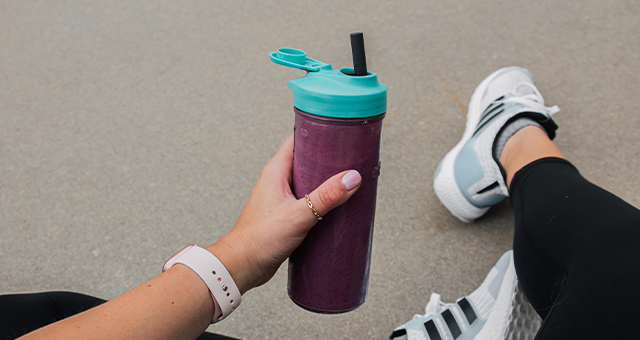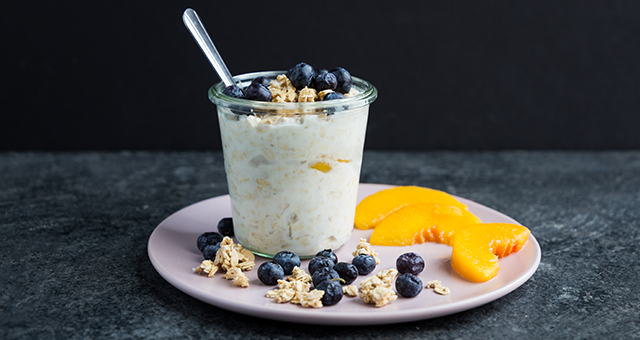Whether you’re a first-time college student or going back to school this fall, we’d like to share with you some tips that can help you eat healthfully and frugally too, even if you live in a dorm with limited resources. Students on a limited income or working within a food budget and a lack of many appliances might feel they have to live off ramen noodles and packaged foods high in sugar, salt, and unhealthy fats, but there are several things you can do, even with limited space, money, and time, that can help you eat very healthfully and frugally. Plus, it doesn’t have to be hard or time-consuming, but you will need to adjust the way you purchase items and just rethink your habits. Don’t worry, within a week or two, you’ll be a pro and the best part is, this type of living will also benefit your health, from your gut health and digestion to your sleep and immunity, too.

Why Eating Healthfully in College is So Important
Students know that the first year of college and those after can be incredibly stressful despite being exciting. Plus, hormones are changing as we edge into adulthood and our bodies require a bit more love and care than they used to. Changing sleep schedules and class schedules can also get in the way of eating well. Late nights out, excess alcohol, and lack of sleep and fresh foods can leave you feeling rotten pretty quickly. Did you know your gut health is dependent on what you eat? It needs quality foods, but don’t let that fool you into thinking these have to be expensive. You do not have to go broke to eat well or even live a healthy lifestyle if you have allergens.
Your microbiome, which is central to your overall health, is dependent on you to feed it two things in order to allow you to maintain a healthier body that allows you to live well, get sick less often, and have a strong, solid mindset. Your mind and mood are directly influenced by what you eat, so filling it up with fruits, veggies, fermented foods, quality proteins, and complex carbs is vital.
So, without further ado, here are some tips to help you get started!

1. Get a Few Things First: Mini Fridge and Personal Blender
Yes, you might have to invest in these 2 things up front, but see if your roommate(s) would be willing to split the cost with you. Or, see if a relative or family friend has one on hand as an extra that you can buy from them at a discounted price, or better yet, see if they’d be willing to lend it to you while in college! If you prefer, you can also go to any “superstore” and get a $50 personal blender and a mini fridge for around $130 to go along with it. With these two things, you’ll be able to have all you need to make amazing meals. Here are some ideas, for example! If your dorm room doesn’t have a small sink you can use, just use your dorm’s hall’s sink to wash out your blender, if you need to.
- Make a fruit and green smoothie with some Lifeway Kefir is great to do for breakfast, for example. Take a banana, which can easily be stored on the shelf, a cup of frozen blueberries, some Lifeway kefir, and a handful of spinach or kale, and blend your way to a healthy breakfast in minutes. Add 1/3 cup oats to your smoothie to make it even creamier and more filling! Since Lifeway Kefir is full of good probiotics, protein, calcium, and B vitamins, your brain and body will be nourished on a whole new level. This can reduce everything from junk food cravings to a bad mood, bad digestion, and more due to the way high probiotic foods, like Lifeway Kefir, affect the mind/gut connection.
- Make overnight oats for breakfast, or even a quick snack. Add a peeled apple or an orange or banana for fresh fruit, some flax or chia seeds, and some Lifeway Kefir. You’ll be set to go for a morning meal, or even a lunch or quick snack if you’re rushed between classes.
- Have fresh fruits and veggies to eat for snacks. Fresh fruits and veggies are so important for your nutrition, gut health, and your overall body and immune system. Having access to just a few items a week is a great place to start, so a mini fridge in your dorm will prevent you from grabbing unhealthy items if you have access to these. You can also store other healthy refrigerated items here, too, that don’t have to be heated, such as hummus, salsa, and other dips to go with your fresh fruits and veggies. Or, use some Lifeway Farmer Cheese to pair with them for more probiotics and protein.
Buying these two small appliances is a great way to make so many dishes and have access to great food, all on a budget. All you will have to do is go to the store once a week and you’ll be set! You don’t even “have” to have a microwave if you have these two foods, but if you do have the extra funds for that and the space, that would be a third item that would be great to have. You can make smoothies, dips, sauces, dressings, and even soups to reheat in a personal blender. You can blend up healthy iced coffees with instant coffee and some liquid of choice without spending all that money on college-campus coffee. Most personal blenders also come with recipe books to give you more ideas.
If you have even more funds to spend, a kettle that you can plug in is also great to make since you can add boiling water to so many things and have a meal in minutes. For example, see these ideas below!

2. Keep “Healthier” Instant Options on Hand
Instead of ramen noodles, pizza, or fast food takeout, which are pretty much void of most nutritional qualities, try keeping healthier “instant” items on hand that don’t require much prep. For example, flavored instant oatmeal is very high in sugar, but you can buy plain varieties with no added sugar and just dress them up yourself. Instant or quick oats have the same fiber, protein, and minerals and vitamins as regular oats; they are just cut more finely so they cook up quicker. To slow down the absorption, top with flax seeds or raw almonds, both of which can be found economically. Most nutritionists agree that while they may have a slightly higher blood sugar spike, the differences are overall very minor compared to the benefits you get from plain old oats, which are a great source of fiber, magnesium, iron, and more that your body needs. Oats also have an anti-inflammatory effect and benefit the gut by being a natural prebiotic to feed good bacteria in the gut. The bottom line is plain instant or quick oatmeal is great to enjoy, and you can add fruit and spices like cinnamon or ginger to make them taste better if you wish.
You can also find instant brown rice cups that require nothing more than boiling water or a microwave to heat them up. Brown rice is much higher in nutrition than white rice and more filling, too. If you don’t have a microwave in your dorm room already, just use the dorm hall’s microwave instead or keep a kettle in your room to boil water with. You can add frozen or fresh broccoli, carrots, and more to this and have a healthy, filling dish in minutes; all you have to do is add a ready made protein, such as canned tuna or chicken, or even boiled eggs if you like them.
Or, for a quick snack or instead of bread, try using whole grain brown rice cakes! These are nothing but whole grain brown rice and have such a satisfying texture. You can spread hummus or Farmer Cheese on them, add some lettuce and shredded carrots, and you have a tasty, healthy sandwich in minutes! Or, spread some nut butter or Farmer Cheese on them with fresh fruit. Try our Blueberry Peach Rice Cakes, for example.

3. Stick to a Budget and Rotate What You Buy
If you feel overwhelmed at the store, don’t feel you have to buy everything at once. Remember, keep it simple and keep this in mind: you can have everything you want to buy, just not all at once. So rotate what you buy. Try one item this week, and one the next. Split the cost with a roommate if that helps and you get along and have the same types of food preferences.
1. Buy lower-cost produce that is still healthy; zucchini, carrots, tomatoes, celery, and cucumbers plus fresh lettuce or spinach are all usually pretty affordable. Apples, bananas, and oranges are other low-cost items that last a while in the fridge or about a week on the counter.
2. Start with just a few spices that carry a lot of flavors so you don’t need a ton of spices or spice mixes. Examples such as cinnamon, black pepper, ginger, and garlic/onion powder if you tolerate it. These have more antioxidants and a lower sodium count than salt, as a bonus, which can dehydrate you quicker.
3. Buy healthy, frugal forms of healthy fats: avocados and many different nuts can be pricey, so choose more budget-friendly options: raw almonds, flax seeds, and chia seeds can all be found in larger amounts, in natural raw form, and more economically than pricier options. They’re also so healthy for you! Choose whole milk Lifeway kefir if you want the benefits of full-fat dairy for the same price as our regular kefir.
4. Look for our kefir in the refrigerated section where other milk and yogurt products are sold, and give it a try. Per serving, it costs less than fancy yogurts, and just a little a day goes a long way. Plus, there are so many flavors to try and limitless ways to use it.
Remember, you can also find so many quick and easy recipes online to help you find new ideas each week. In fact, we have many recipe ideas that would work wonderfully for college students! Check them out here, and check us out on Instagram if you haven’t already; we would love to have you be a part of our community there! Good luck to all of you and we wish you the best. And remember, #LoveYourGuts no matter what.